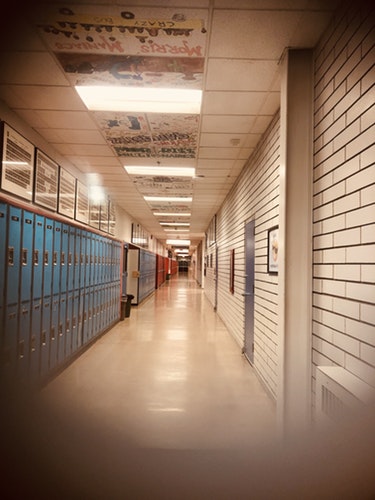
The end of the school year is close at hand. Teachers are trying to stay smiling while many feel they are at their wit’s end. I don’t need to enumerate these end-of-the year stresses.
Many teachers, on top of everything else, are already planning next year, thinking about what they can do differently.
Here are four things you can do now to plan for a better 2019-2020 school year:
- Plan how you will take care of yourself. When the teacher takes the time to take care of herself, students as well as the teacher benefit. Self-care could include better nutrition, regular exercise, and getting a full eight hours of sleep. I know I used to think I simply did not have time to plan better meals, walk for a half hour, and try to get more sleep. It always seemed like everything I did ate up any time I might use to cook, exercise or sleep. What I discovered was that if I worked out for a half hour, I was more likely to sleep better, I was more likely to think about preparing veggies instead of loading up on carbs, and I had more energy to tackle whatever else needed to be done. Really.
How can you force yourself to do these things? I recently worked with a college student who was taking a class on how to be a personal trainer. I showed up every day we were scheduled to meet, even though I frequently grumbled all the way there. Why? Because the student’s grade that was dependent, in part, on my showing up. The lesson I learned: find someone to whom you feel you are accountable. This could be friend, a colleague, a spouse. Schedule your time to meet to work on self-care.
Use the summer to get into the habit so that it is easier to do when school starts up again.

- Consider what procedures worked this year, which ones could be improved upon, and any procedures that might make your life easier in the fall. Remember, procedures are the bedrock of managing a classroom. Rules do not manage students and students often see rules as a dare. They test us for days and weeks to see if they can get a consistent answer about whether or not we are serious about them. In part, it is for that reason that I would rather teach in a school that had no rules and lots of procedures than in a school with a lot of rules and no procedures.
It is all right to have procedures that benefit the teacher! My students would tear pages out of spiral notebooks to turn in. The “fringe” on the pages seemed to lock together irritating me no end. The solution was to teach a new procedure. I put a pair of scissors on a string next to a waste basket. I showed the students how to cut down the “eye” of the spiral fringes, holding the papers over the waste basket to catch the resulting confetti. Problem solved!
Think about what procedures might make your life easier in the classroom next year.

- Think about ways to keep your enthusiasm for teaching alive and well. If we are enthusiastic about teaching, that enthusiasm shows. Students know which teachers are passionate about teaching, not just about the subject. That passion is contagious. The students catch it and our colleagues do, too.
I always found that taking a class, whether or not it was for credit, and reading the required books or articles kept me on my toes. Even when I didn’t take an actual class, joining others to talk about books, articles, videos, etc., helped me think of ways to keep my instructional craft fresh. Lately I am apt to turn to social media to help me remember why I went into teaching in the first place.

- Contemplate how you will find compassion for THAT student. You know you will have someone in class that will fall into being THAT student. It is inevitable. Yet when we start thinking THAT student is purposely out to get us, or that s/he can’t learn or can’t behave, we begin treating him/her differently. We don’t mean to, but we do.
I have used the “Ten good things about ___” strategy taught to me by another behavior disorders teacher. That is, when I find myself thinking negative thoughts about THAT student, I sit down and try to list ten positive things about him/her. If I can’t think of ten things, and I frequently can’t, I set myself the task of looking for positive things about him/her to round out my list. Looking for good things, especially if I am planning on sharing that information with THAT student’s parent(s) helps me focus away from the negative. I almost always find THAT student does something that I find amusing or endearing, some little thing I would not have noticed if I didn’t look at him/her with that in mind.
What can you do to be more mindful of what is good, or interesting, or worthwhile about THAT student? What can you do to view his/her behavior as clues to how to help him/her? Planning strategies to look for ways to like THAT student can actually help you treat THAT student in ways that defuse his/her more irritating behavior.

Teaching is a far more difficult job than most people realize until they actually are teaching. Planning now for a better next year can help smooth over some of the inevitable rough spots so we can focus more on the joy than the day-to-day difficulties we are sure to encounter.
